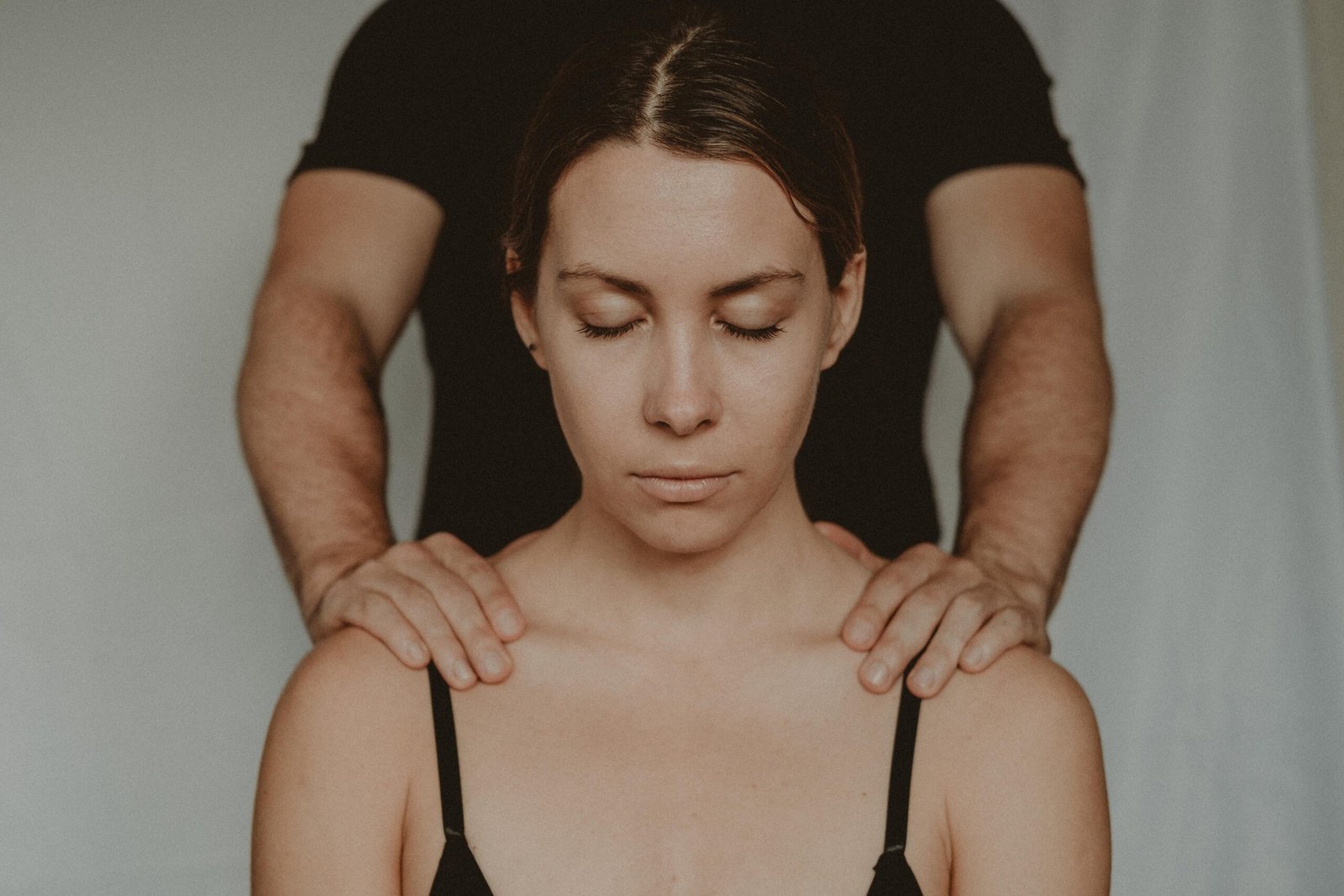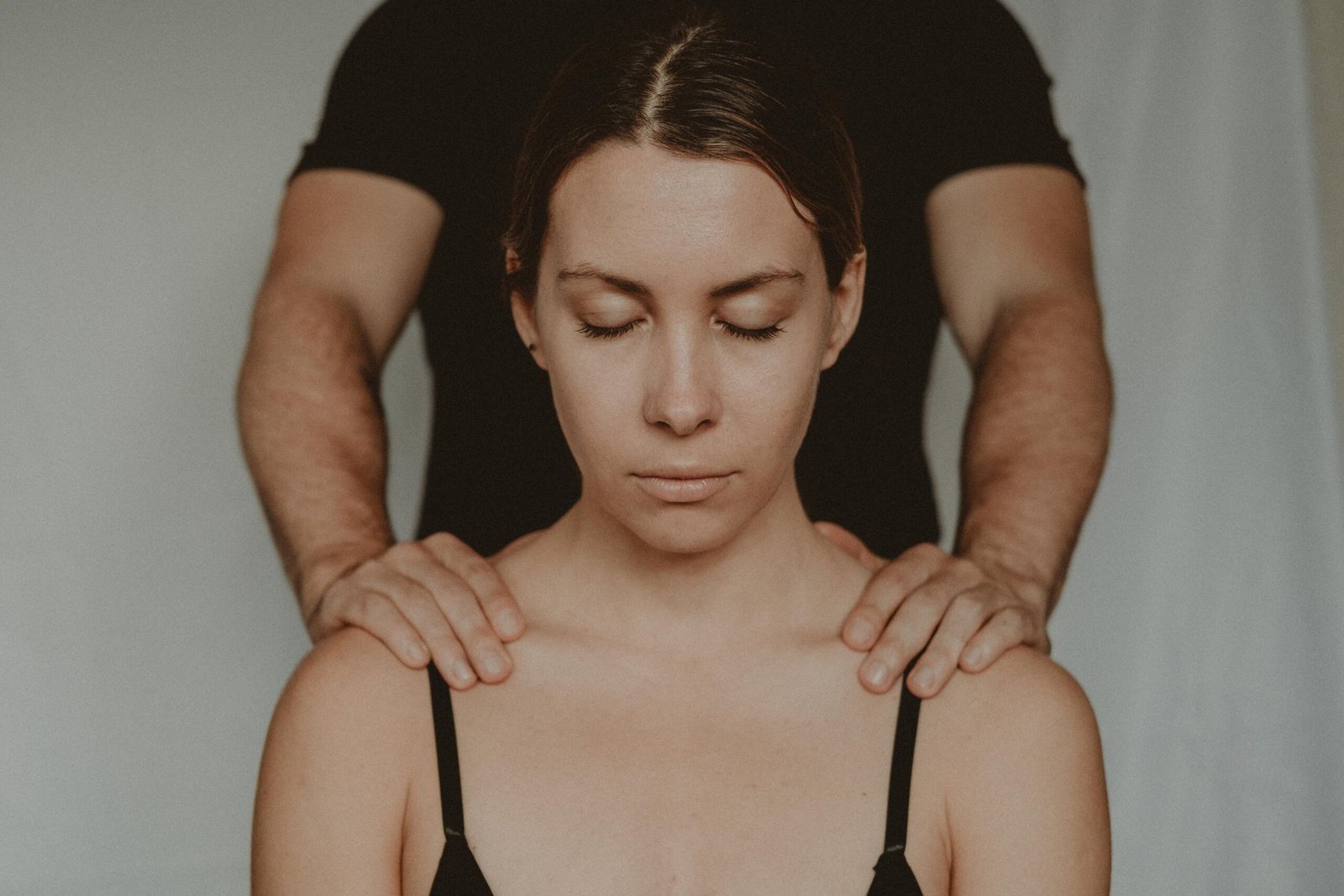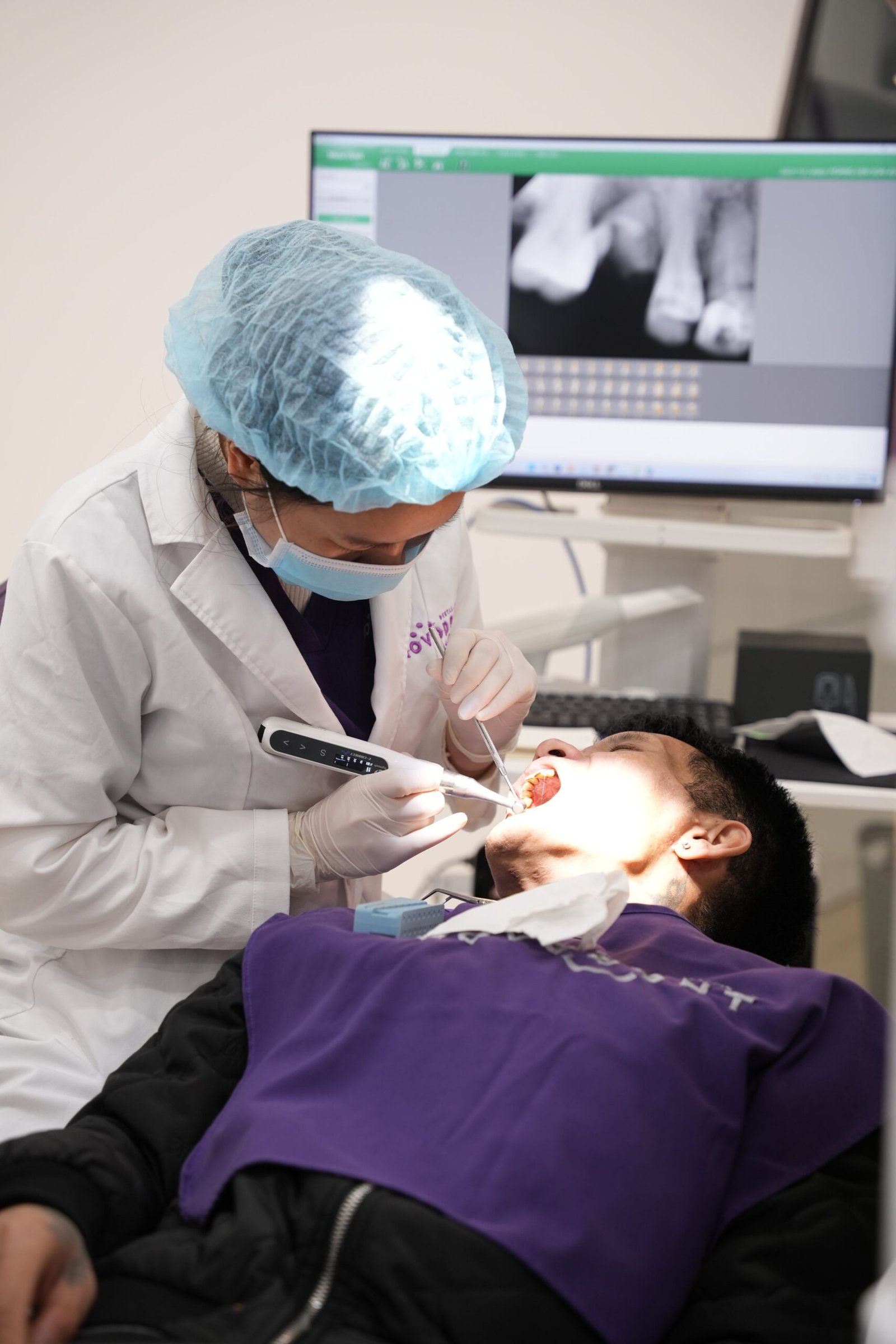
Having trouble sleeping due to right shoulder pain? This article delves into the possible causes behind this discomfort experienced during restful nights. From shoulder injuries to underlying medical conditions, understanding the reasons for your right shoulder pain during sleep can help you find relief and improve the quality of your rest. So, if you find yourself waking up with discomfort in your right shoulder, keep reading to uncover the potential culprits behind this issue.
Causes of Right Shoulder Pain During Sleep
If you find yourself waking up with right shoulder pain, it can be quite bothersome and disrupt your sleep. Understanding the causes of this discomfort can help you find ways to alleviate it and improve the quality of your sleep. Here are some common causes of right shoulder pain during sleep and how they can affect you:

Muscle strain
Muscle strain is one of the most common reasons for right shoulder pain during sleep. It occurs when the muscles in your shoulder are overstretched or torn. There are several factors that can contribute to muscle strain, including:
Overuse
Engaging in repetitive or strenuous activities that involve your shoulder muscles can lead to overuse and strain. This is commonly seen in athletes, weightlifters, or individuals who perform repetitive motions at work. Giving your shoulder muscles time to rest and recover can help alleviate the pain.
Poor sleeping posture
Believe it or not, the way you sleep can also cause shoulder muscle strain. Sleeping in an awkward position or using a pillow that doesn’t provide adequate support can put unnecessary stress on your muscles, leading to discomfort during sleep.
Excessive force
If you tend to sleep with your arm positioned underneath your body or you frequently sleep on your side with your arm tucked under your pillow, you may be exerting excessive force on your shoulder muscles. This can result in strain and pain.
Muscle imbalances
Imbalances in the strength and flexibility of your shoulder muscles can also contribute to right shoulder pain during sleep. Weak muscles may be more prone to injury, while imbalances in flexibility can lead to strain when your shoulder is not able to move through its full range of motion.
Rotator cuff injury
The rotator cuff is a group of muscles and tendons that surround the shoulder joint, providing stability and allowing for a wide range of motion. Injury to the rotator cuff can cause pain and limit your shoulder’s mobility. Some common causes of rotator cuff injury include:
Repetitive activities
Engaging in repetitive motions that involve lifting, reaching, or overhead movements can gradually wear down the rotator cuff and cause injury. This is often seen in athletes who participate in sports such as swimming, tennis, or baseball.
Trauma
A sudden fall, impact, or accident that directly affects the shoulder joint can cause a rotator cuff injury. This can range from a mild strain to a complete tear of the tendons.
Aging
As we age, the tendons of the rotator cuff become weaker and more susceptible to injury. Degenerative changes can occur, making the rotator cuff more prone to tears.
Flexibility issues
Poor flexibility in the muscles and tendons surrounding the shoulder joint can put additional stress on the rotator cuff. Limited range of motion can increase the likelihood of injury during physical activities or even while sleeping.

Frozen shoulder
Frozen shoulder, also known as adhesive capsulitis, is a condition characterized by stiffness and pain in the shoulder joint. It occurs when the tissues surrounding the shoulder joint become thick and tight, limiting its movement. There are several factors that can contribute to the development of frozen shoulder, including:
Diabetes
Individuals with diabetes are more at risk of developing frozen shoulder. The exact connection between the two is not fully understood, but it is believed that high blood sugar levels can affect the shoulder joint’s ability to move freely.
Immobility
Prolonged periods of immobilization, such as wearing a sling or being bedridden, can increase the risk of developing frozen shoulder. Lack of movement can cause the tissues around the joint to stiffen and tighten.
Gender
Women are more likely to develop frozen shoulder compared to men. The reason behind this gender disparity is still unknown.
Age
Frozen shoulder tends to be more common in individuals between the ages of 40 and 60. However, it can occur at any age.
Bursitis
Bursitis is the inflammation of the bursae, which are small fluid-filled sacs that cushion the bones, tendons, and muscles around joints. When the bursae in the shoulder become inflamed, it can cause pain and tenderness. Several factors can contribute to bursitis in the shoulder:
Overuse
Engaging in repetitive activities that involve overhead movements or excessive use of the shoulder joint can lead to bursitis. This is commonly seen in athletes who participate in sports such as swimming, volleyball, or baseball.
Injury
Direct trauma or impact to the shoulder can cause bursitis. Falls, accidents, or excessive pressure on the shoulder joint can lead to inflammation of the bursae.
Infection
In rare cases, an infection can develop in the bursae of the shoulder, causing inflammation and pain. This is usually accompanied by warmth, redness, and swelling in the affected area.
Underlying conditions
Certain medical conditions, such as rheumatoid arthritis or gout, can increase the risk of developing bursitis in the shoulder. Inflammatory conditions can result in the accumulation of fluid in the bursae, leading to inflammation and pain.

Tendonitis
Tendonitis occurs when the tendons in the shoulder become inflamed or irritated. This can cause pain, swelling, and difficulty moving the shoulder. Several factors can contribute to shoulder tendonitis:
Repetitive motions
Engaging in repetitive movements, such as throwing a ball or performing overhead activities, can put stress on the tendons and lead to inflammation. This is often seen in athletes and individuals who perform repetitive motions at work.
Aging
As we age, the tendons in our body become less flexible and more prone to injury. Degeneration can occur, resulting in tendonitis.
Poor posture
Maintaining poor posture for long periods, such as slouching or hunching your shoulders, can put strain on the tendons of the shoulder. This can lead to inflammation and pain over time.
Misalignment
If the bones and joints in your shoulder are not properly aligned, it can cause uneven stress on the tendons. This can result in tendonitis and discomfort during sleep.
Arthritis
Arthritis is a condition characterized by inflammation of the joints. It can affect the shoulder joint and cause pain, stiffness, and limited mobility. There are several types of arthritis that can contribute to right shoulder pain during sleep:
Osteoarthritis
Osteoarthritis is a degenerative condition that occurs when the cartilage in the joints gradually wears away. This can lead to bone-on-bone contact and cause pain and inflammation in the shoulder joint.
Rheumatoid arthritis
Rheumatoid arthritis is an autoimmune disease that causes chronic inflammation in the joints. It can affect the shoulder joint and result in pain, swelling, and stiffness.
Gout
Gout is a form of arthritis caused by the buildup of uric acid crystals in the joints. It can affect the shoulder joint and cause sudden and severe pain during sleep.
Inflammatory conditions
Other inflammatory conditions, such as lupus or psoriatic arthritis, can also contribute to right shoulder pain during sleep. These conditions can cause chronic inflammation in the joints, leading to pain and discomfort.
Shoulder impingement
Shoulder impingement occurs when the space between the bones in the shoulder narrows, putting pressure on the tendons and bursae. This can cause pain and limit your shoulder’s range of motion. Several factors can contribute to shoulder impingement:
Overhead activities
Engaging in activities that involve repetitive overhead movements, such as swimming, painting, or weightlifting, can increase the risk of shoulder impingement. The repetitive motion can cause the tendons and bursae to become irritated and inflamed.
Shoulder instability
If the structures that hold the shoulder joint in place, such as the ligaments and tendons, are weak or damaged, it can lead to shoulder instability. This can result in impingement and pain during sleep.
Trauma
A sudden fall, injury, or accident that affects the shoulder joint can cause shoulder impingement. The impact can compress the tendons and bursae, leading to irritation and pain.
Muscle imbalances
Imbalances in the strength and flexibility of the muscles surrounding the shoulder joint can increase the risk of impingement. Weak or tight muscles may alter the biomechanics of the shoulder, causing impingement and discomfort.
Adhesive capsulitis
Adhesive capsulitis, also known as frozen shoulder, is a condition characterized by the inflammation and thickening of the capsule surrounding the shoulder joint. This can lead to pain, stiffness, and limited mobility. The exact cause of adhesive capsulitis is unknown, but several factors can increase the risk:
Diabetes
Individuals with diabetes are more prone to developing adhesive capsulitis. High blood sugar levels may affect the shoulder joint’s ability to move freely, leading to inflammation and stiffness.
Autoimmune diseases
Some autoimmune diseases, such as rheumatoid arthritis or lupus, can increase the risk of developing adhesive capsulitis. The exact connection is still not fully understood.
Lack of mobility
Prolonged periods of immobility, such as wearing a sling, can increase the likelihood of developing adhesive capsulitis. Lack of movement can cause the tissues around the shoulder joint to stiffen and tighten.
Unknown causes
In some cases, adhesive capsulitis can occur without any known cause or underlying condition. It can develop gradually over time and cause significant discomfort during sleep.
Pinched nerve
A pinched nerve occurs when a nerve in the shoulder becomes compressed or irritated. This can cause pain, numbness, tingling, or weakness in the shoulder and arm. Several factors can contribute to a pinched nerve in the shoulder:
Poor sleeping posture
Sleeping in a position that puts pressure on the nerves in the shoulder can lead to a pinched nerve. This can occur when you sleep with your arm positioned underneath your body or when your head and neck are not properly aligned.
Overuse
Performing repetitive motions that involve the shoulder joint can increase the risk of a pinched nerve. This is often seen in individuals who engage in activities that require frequent reaching, lifting, or overhead movements.
Trauma
An injury or accident that directly affects the shoulder joint can cause a pinched nerve. The impact can compress the nerves and result in pain and discomfort.
Muscle imbalances
Imbalances in the strength and flexibility of the muscles surrounding the shoulder joint can put pressure on the nerves. Tight muscles can compress the nerves, leading to a pinched nerve.
Sleeping position
Believe it or not, your sleeping position can play a significant role in causing right shoulder pain during sleep. The way you position yourself while sleeping can put strain on your shoulder joints, muscles, and tendons. Here are different sleeping positions and how they can contribute to shoulder pain:
Side sleeping
Sleeping on your side with your arm positioned underneath your body can put excessive pressure on your shoulder joint. This can cause discomfort and exacerbate existing shoulder issues, leading to pain during sleep.
Stomach sleeping
Sleeping on your stomach can force one shoulder to bear the majority of your body’s weight. This can lead to strain and discomfort in the shoulder joint, muscles, and tendons.
Back sleeping
Sleeping on your back can be a good position for shoulder health, as it distributes your body weight evenly. However, if you don’t have proper pillow support or your spine is not properly aligned, it can still contribute to shoulder pain.
Improper pillow support
Using a pillow that doesn’t provide adequate support for your head, neck, and shoulders can put strain on the shoulder joints and muscles. This can lead to pain during sleep and upon waking up.
In conclusion, right shoulder pain during sleep can be caused by various factors, including muscle strain, rotator cuff injury, frozen shoulder, bursitis, tendonitis, arthritis, shoulder impingement, adhesive capsulitis, pinched nerve, and improper sleeping position. Understanding these causes and making appropriate lifestyle changes, such as adjusting your sleeping position or seeking medical advice, can help alleviate shoulder pain and improve the quality of your sleep. Remember to listen to your body, prioritize self-care, and seek professional help if needed to effectively manage and prevent right shoulder pain during sleep.





